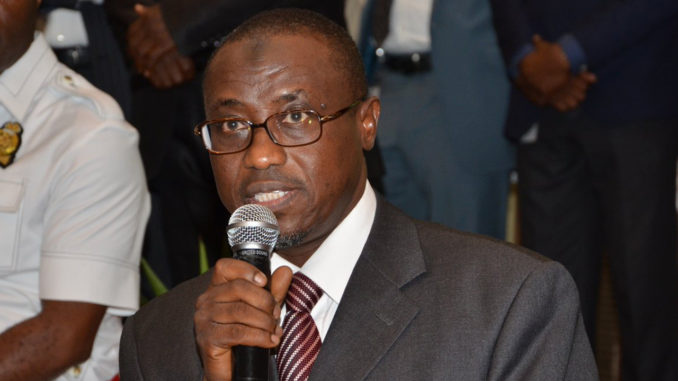
One starts with an excerpt of the Nigerian National Petroleum Corporation’s response to the allegations of the Minister of State for Petroleum Resources, Ibe Kachikwu, on being sidelined by the NNPC GMD, Maikanti Baru:
“…It is important to note from the outset that the law and the rules do not require a review or discussion with the Minister of State or the NNPC Board on contractual matters. What is required is the processing and approval of contracts by the NNPC Tenders Board, the President in his executive capacity or as the Minister of Petroleum Resources, or the Federal Executive Council, as the case may be. There are therefore situations where all that is required is the approvalof the NNPC Tenders Board while, in other cases, based on the threshold, the award must be submitted for presidential approval. Likewise, in some instances it is FEC approval that is required…”
The above response shows a serious lack of understanding of corporate governance laws, and it exposes the prospects for disparities in due process. The inactiveness of the investigating bodies such as the Independent Corrupt Practices And Other Related Crimes Commission or the Economic and Financial Crimes Commission is also a cause for concern. They should be competing with the Presidency to investigate and to formulate unredacted facts surrounding this development. If, and assuming the Minister of State was under any prior investigation, then it is the responsibility of the President as the protector of the nation, to ensure the public as immediately acquainted with such developments. Regardless, the response of the NNPC shows serious flaws.
To explain, once the President was on medical leave on different occasions, after delegating his presidential powers to the vice-president, he had by that virtue also promoted the Minister of State to the office of substantive Minister of Petroleum Resources.
Section 145 of the constitution, which enables the President to delegate the functions of the office to the vice-president, constrains itself to only the President’s defined powers, and none other. By such, the next senior public officer in the Ministry of Petroleum Resources becomes the substantive Minister of Petroleum Resources. The Minister of State was in fact the substantive for those two periods of approximately 150 days or so when the President was on medical leave. Assuming the minister of state was not consulted on approvals, such contradicts the compliance aspects of the due process procedure.
Even misplaced is the pre-conceived notion that any approval by the President negates prior conformity with the Governing Board or the board. Laws assume concurrence with the relevant corporate governance procedure.
This represents the entirety of the due process standards, inclusive of the authority of the Tenders Board. In case of any doubt, if one considers the alternative, where the board must reinforce the standards of the corporation in the fulfilment of its strategic goals, it can examine the correctness of the Tenders Board’s decisions. Those are the obvious flaws of the NNPC’s response. The role of Governing Board is regulatory. The board can enquire for any information, to assist it in managing the day-to-day affairs of the corporation as long as it does not inhibit the commercial activities of the petroleum corporation; such responsibility lies with the Chairman, or in the case of the Minister of State, the delegated alternate Chairman.
Unfortunately, those allegations amplify sceptisms regarding the competence and capabilities of the GMD.
Even sensibly, the Minister of State has a special responsibilities; for that office is both a cabinet minister with sub-supervisory powers over the petroleum resources industry, and is also the regulatory chairman of the board of the NNPC. Obviously, one suspects the Minister of State understands the extent of the influence of such offices in reforming corporate governance rules. The offices can propose recommendations to the substantive minister (the President). To be irreverent to the board chairman necessitates unanimity of the board, and as a substantive minister while the President was on leave, such is also insubordinate. Any nation should be grateful that it has such a world-class professional in its service, regardless of the manner with which the controversy became public, for it is a civic responsibility of any patriotic individual.
Even more troubling, the events at the NNPC are not only the developments distressing the nation day-by-day. In honesty, we are observing what appears to be a complete systemic breakdown of governance, jeopardising critical societal obligations.
The examples are abundant: the cabinet ministers are non-performing; there are substantial losses in corruption cases consistently, signalling insufficiently prosecutorial guidance; the whistle-blowing policy faces unjustifiable extinction by prosecuting unsuccessful “tipsters”; the Central bank prefers status-quo and unsustainable remedies; economic revitalisation of the base export industries faces inconsequential prospects; parliament does not enquire on the state of critical capital investments such as sustained electricity; the Police Service Commission publicly complains of being helpless when in fact Section 56 of the constitution implicitly empowers it to discipline even the Inspector-General of Police, and Section 47 of the Police Act explicitly allows for the submission of disciplinary recommendations to the President (for even the Inspector-General of Police is an officer of the Nigeria Police Force); the Federal Character law is disregarded in the appointments of government parastatal officers increasingly. These are unmistakably clear symptoms of the effects of a parallel government. One can easily conclude that the President may not truly be in charge of national affairs, and he agrees to contravenous decisions, with parliament’s consent.
The GMD must submit unconditionally to the Board of the NNPC, and the President should establish a committee to investigate the distressing facts, which in extremes may even recommend the dissolution of the petroleum corporation rather than accept a non-functional board. The consequences are quite obvious: when the Governing Board Chairman complains of a “fear culture”, one must be fearful that the organisation’s strategic goals are in serious perils.
Agans-Oliha, a policy analyst, wrote in from New York City, US, viaperfmgmt@oadix.com
END

Be the first to comment